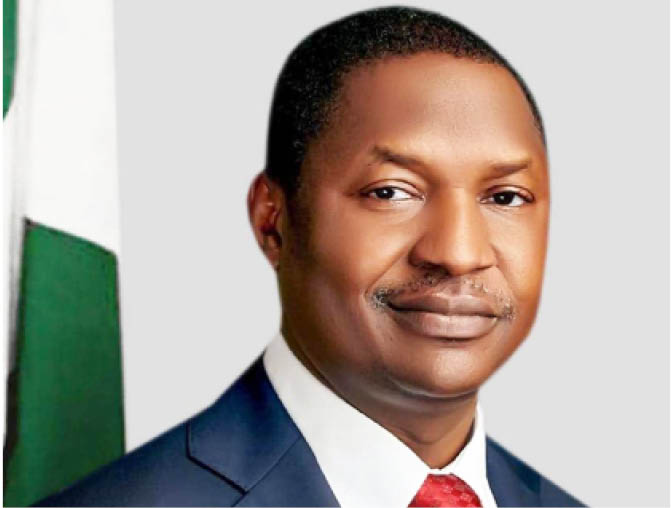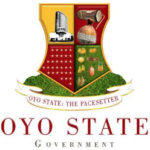In this interview, the Minister of Justice and Attorney-General of the Federation, Abubakar Malami, a Senior Advocate of Nigeria (SAN), spoke on the contention around deduction of funds from allocations to states and local governments to pay consultants, with regards to the Paris Club refund.
Paris Club refund to some consultants, to the tune of $418million, has generated a lot of brouhaha from the Nigeria Governors Forum, saying you didn’t act in the interest of the Nigerian public, what is your take?
The precursor of understanding the true position of things as far as the Paris Club refund issue is concerned is for you to know that it is an issue that predates the administration of President Muhammadu Buhari.
As far back as 2013, there was an engagement by the outgoing administration and the Nigeria Governors Forum (NGF), of certain consultants that were engaged by the two for the purpose of recovering certain amounts of money relating to Paris Club refund.
The consultants indeed delivered; but fundamentally, they were not paid the fees for the services they claimed to have rendered, on account of which they approached the judicial system for the determination of their rights, and indeed, the enforcement of their fees.
In 2013, the outgoing government and the NGF came together, agreed and submitted to a consent judgement by a court of law. That consent judgement is what gave rise to the liability in contention.
In 2017 and 2019, the federal government was approached by these consultants for the purpose of payment of their respective professional fees. The federal government approached the NGF and the Association of Local Governments of Nigeria (ALGON) and they collectively conceded to the position that the consultants had indeed provided the services and they were ready for the payment.
But the point of interest is that the NGF and ALGON met the federal government and conceded that payment should be deducted from their monies. In 2016 and 2017, these deductions were carried out. That was the situation on ground.
But when the claims were eventually made, the federal government, under the Office of the Attorney-General of the Federation, felt that the amount of money agreed to be paid to these consultants was very huge, and the federal government became suspicious of what the NGF and ALGON were up to.
The federal government wrote to the Economic and Financial Crimes Commission (EFCC) and the Department of State Services (DSS), seeking for the verification of the veracity and authenticity of the claims, and indeed, the judgement that gave rise to it.
The EFCC and DSS wrote to the Office of the Attorney-General in confirmation of the liability because the federal government was made a party in the suit instituted by the consultants, on the implication of making the federal government a party, such that it could as well be liable.
So, on that note, the federal government took steps to approach the NGF and ALGON for the purpose of having their take as far as their liability is concerned.
I am happy to report that the governors, as at 2017, individually wrote in confirmation of admission of liability, the same thing with ALGON.
It is indeed amazing that the governors, after having serviced the same claim for over a period of five years, are now belatedly turning round to raise objections in respect of the payment, even when they have consented on their own to a judgement entered in 2013 before this government came in.
One thing I think should be made clear is that the responsibility of the attorney-general is to provide the necessary protection to the federal government. So I cannot sit here as attorney-general and allow the federal government to be exposed to a third liability.
Would you say the governors are just forum-shopping?
Truly, it is the best word to characterise what the NGF and ALGON are doing in the circumstance of the Paris Club arrangement. This is because they originally submitted to a court judgement. Secondly, arising from the consent judgement, orders were made, inclusive Garnishee and orders of mandamus. They indeed conceded to the judgement by making periodic payments of the liability.
You cannot be submissive to a consent judgement, then simply turn around to approach the court for the purpose of denial of a liability, about 10 years thereafter. It is a clear case of abuse.
This is a document that was entered in 2013, and in 2021, someone is coming around to claim that he is denying a liability, even when his opportunities for appeal and associated privileges associated with setting aside the judgement were at no point exercised.
What is your relationship with the consultants for the NGF and ALGON? I asked this question because in the statement, the NGF suspects that you have some special relationship with them.
Well, I am a lawyer, not a contractor, neither am I a consultant, but one thing of interest is that if there is any insinuation or relationship, it would be placed on the doorsteps of the governors and the ALGON, who first engaged the consultants and have been paying the professional fees.
They point to the speed at which this agreement was executed, but the office of the attorney-general had indeed refused to concede or advise the federal government to effect payment, but rather took steps to engage the EFCC and the DSS for the purpose of confirmation and verification of the authenticity of the judgement. This cannot be said in any way to be speedy, in terms of submission, and perhaps advising the government to effect payment. So the idea of speed does not arise at all.
They said you ignored the appeals they made, is that true?
I told you earlier that the judgement in contention was in 2013 and the ALGON NGF consented.
So what judgement are you talking about in 2021, against the background of the fact that they consented to the judgement in 2013 and have been effecting payment? They have also written, committing to the payment of this consultancy fee we are talking about.
I think it is logical for all to see that they were indeed submissive and were in agreement. They consented to a judgement that created the liability they are now complaining about.
Don’t you think it is better to wait for the outcome of the judgement from the Federal High Court before going ahead with payment?
One thing you need to know is that the payment is not an affair of the office of the attorney-general, so we are not in any way involved.
But the fact remains that judgements are meant to be enforced; and you are not expected to be speculative as far as the enforcement is concerned.
In the case of P&ID, when an award was made against Nigeria, what we did was to approach the court for the purpose of setting aside the enforcement proceedings.
It was when the proceedings were set aside that we had the required respite in terms of ensuring that no asset of the federal government was attached.
So the fact that they are in court belatedly, again, against the background that they had three months within which to appeal against the 2013 judgement, makes it illogical that they expect the federal government or perhaps any institution of government faced with a judgement and order of the court to await their belated approach to court, which is indeed a forum-shopping.
You said earlier that the claim made the NGF and ALGON was bogus, and that was why the federal government involved the EFCC and DSS to authentic the project. What were they claiming and how much were they claiming?
The claim was in the sum of $3billion as submitted to by way of consent judgement in court.
The ALGON and NGF submitted two in 2013, and that was what they wanted the federal government, after the coming in place of the government of President Muhammadu Buhari, to pay, without any recourse to due diligence.
That was what gave rise to the decision of the government of President Buhari to approach the EFCC and the DSS and ask them to look at a claim of $3bn by consultants for services rendered. We now commissioned an investigation in respect thereof.

 Join Daily Trust WhatsApp Community For Quick Access To News and Happenings Around You.
Join Daily Trust WhatsApp Community For Quick Access To News and Happenings Around You.


